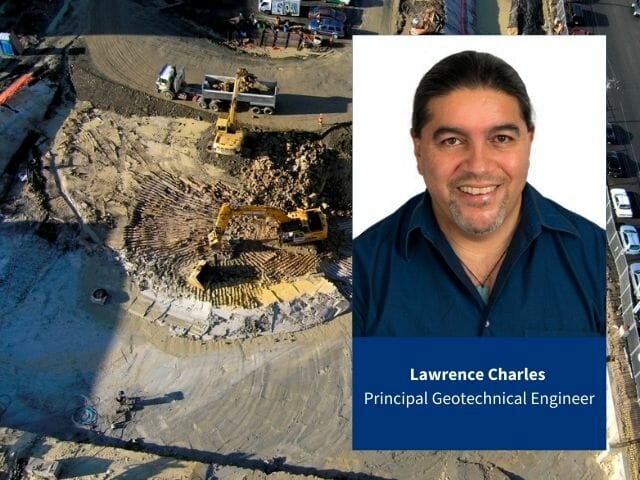
Resilience in an ever-changing world
Lawrence Charles is a Principal Geotechnical Engineer with Tetra Tech Coffey who recently presented his paper on the challenges and costs of building in geothermal environments at the NZIQS 2021 conference
Over 325 delegates, sponsors and exhibitors attended the NZIQS 2021 Conference in Rotorua in early July 2021, with speakers covered a range of topics relevant to quantity surveying, the construction industry and personal development. Presentations included an update on the economy, re-shaping the role of the Engineer to the Contract, how to make valid Payment Claims and Payment Schedules to avoid disputes, surviving as a business in a COVID-19 world, the different roles of a quantity surveyor, and the sustainable opportunity of building with wood.
Challenges and costs of building in geothermal environments
For more than 25 years, Lawrence Charles has been providing specialist consulting services helping clients address their most complex challenges. Lawrence specialises in excavation and slope stability assessment, landslide risk assessment and remediation, geohazard risk assessment, fault evaluation, terrain analysis, earthworks/construction oversight, and quality assurance.
The Rotorua Geothermal Field sits in the Taupo Volcanic Zone and is ideal for electricity generation and direct heat sources. The Rotorua Lakes Council has specific requirements for construction in this geothermal area, including:
- a systematic approach to the management of ground hazards
- 7 potential geothermal-specific hazards are noted in the ground hazards table
- Peer Reviews are required due to the levels of complexity
- self-declaration of competency of the geo-professional or chartered professional engineer.
Actual and potential hazards within the Rotorua District can be both natural and manmade. Some hazards can interact to increase cumulative effects (e.g. liquefaction and geothermal). Some parts of Rotorua will likely experience liquefaction on hot areas.
Additional geothermal construction
Some of the additional costs that building in a geothermal field may require are:
- Machine Borehole Drilling Geothermally altered soils sometimes make for very hard drilling.
- Blow Out Preventers (BOP) If the maximum safe temperature of 85°C is reached at an unacceptably shallow depth, the continuation of the borehole will require the use of a BOP and grouted casing. The drilling subcontractor’s cost can be $4,000 or more plus two to three days for a driller to install.
- CPT Drilling Geothermally altered upper soils often make CPTs deeper than 5m to 10m difficult. Fault Avoidance Zone Trenching is required during investigation or construction. However, this may not determine a fault as the trench is normally shallow.
- Corrosive Environment Sulphate and pH testing is recommended, and corrosion-resistant concrete is sometimes called for.
- Abandonment of Geothermal Bore This may take one to three days and 150mm annulus to cap.
- Gas Membrane Requirement Where H2S gas is on file and/or gas permeation is an issue, the gas membrane is incorporated into the design and may take many days or weeks to install before and after the concrete pour.
- Standover Requirement In a geothermal field for any borehole or CPT deeper than 5m.
- Other Costs Drilling consent, fully grout exploratory machine boreholes and CPT holes post[1]investigation, CPT holes not deep enough sometimes require machine boreholes to drill through hot or hard ground, settlement monitoring, Health and Safety (gas detector requirements, paired workers etc.), and peer reviews.
To find out more, contact Lawrence Charles on +64 21 934 036 or lawrence.charles@tetratech.com
Publisher note
This article first appeared in Built Environment Economist, Australia and New Zealand Sept- Nov issue 2021 and was reproduced with thanks to the publishers. Built Environment Economist is the flagship publication of Australian Institute of Quantity Surveyors (AIQS). Produced quarterly, Built Environment Economist seeks to provide information that is relevant for quantity surveying, cost management and construction professionals. www.aiqs.com.au